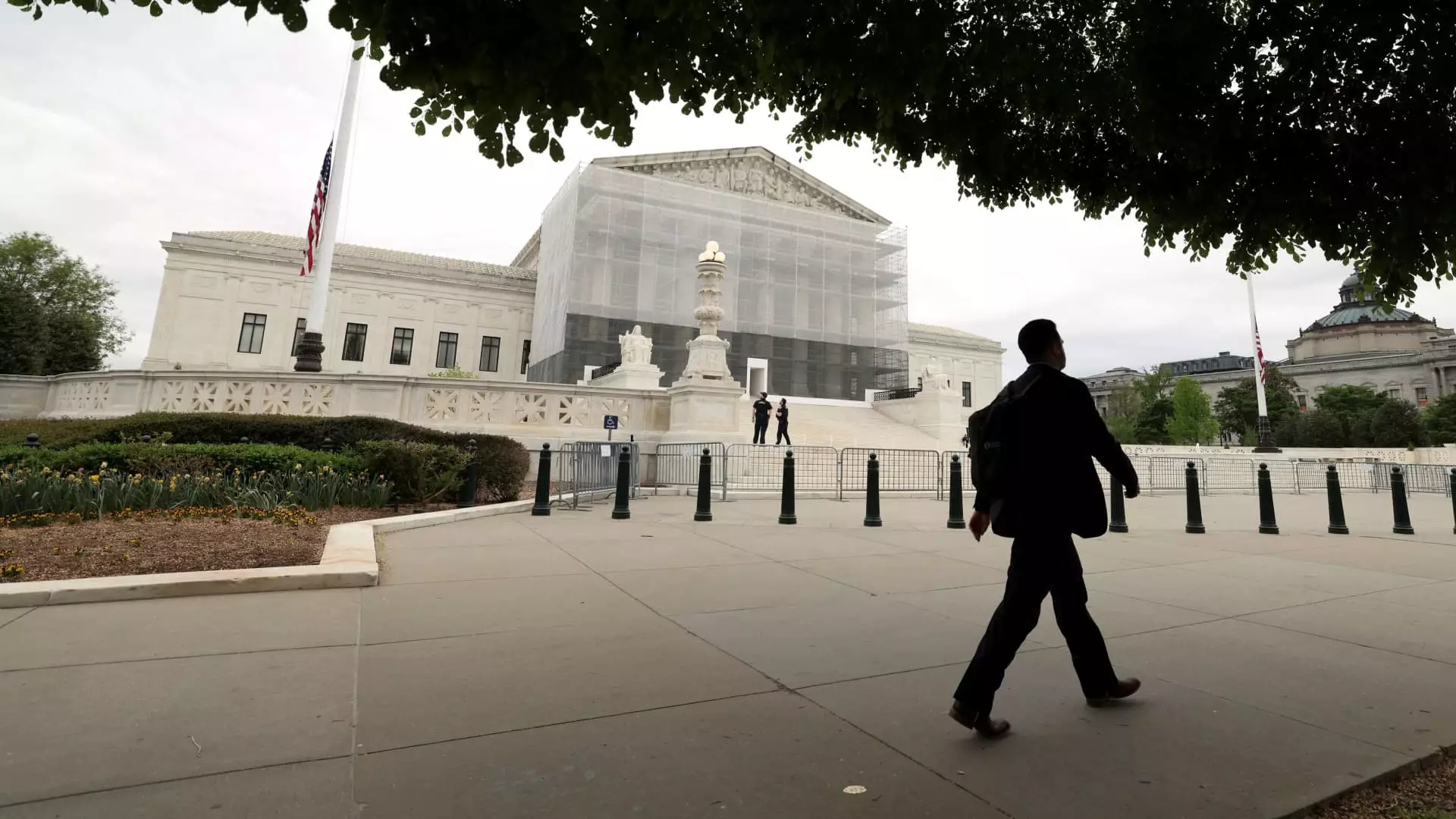The recent ruling by the U.S. Supreme Court regarding the treatment of Venezuelan nationals under the Alien Enemies Act (AEA) has revealed significant flaws in the administration of justice within the immigration system. In a 7-2 decision, the Court found that the Trump administration’s actions were not only hurried but also decidedly insufficient in granting individuals the required due process before expulsion from the United States. The urgency behind the injunction highlights the dark underbelly of a legal framework that too easily sacrifices the rights of human beings in favor of a hasty national security narrative.
The majority opinion rightly emphasized the dire need for proper notice prior to removals. The Court noted that providing detainees with mere hours of notice is a gross violation of their rights, effectively rendering them powerless to respond. This ruling raises critical questions about the ethical implications of expedited removal processes and underscores the tension between national security interests and individual rights—a balance that seems disproportionately tilted toward the former.
Flaws in the Administration’s Approach
The administration’s approach under the AEA points toward a broader, troubling trend in American immigration policy, especially under a leadership that has repeatedly fueled anti-immigrant rhetoric. Invoking the AEA to target individuals allegedly affiliated with the Venezuelan gang Tren de Aragua, Trump’s executive proclamation leaves little room for nuance and compassion. It characterizes these individuals—many of whom may be victims of circumstances—as threats, inviting an environment of fear and hysteria around immigration.
It’s unsettling to consider how the government categorized individuals over the age of 14 as “enemies” based on their presumed connections to a gang. Such sweeping generalizations strip away the humanity of these individuals, conflating association with inherent menace. This not only violates basic due process rights but also undermines the foundational principles of justice. One must question: Is national security so precarious that we must dismantle the rights of the very individuals who seek refuge from violence and political instability in their home countries?
The Role of Dissenting Voices
Justice Samuel Alito, dissenting alongside Clarence Thomas, advocated a more stringent interpretation of imminent danger regarding deportation. Their dissent raises an important perspective, though one cannot help but find it lacking compassion for those who stand on the brink of removal. Their argument neglects the complex realities faced by immigrants, particularly those from volatile regions like Venezuela, where the stakes of deportation are not merely legal but profoundly personal and life-altering.
The insistence on viewing these cases through the lens of “danger” misses the broader point—the lives of those targeted deserve recognition beyond the state’s narrative of security. By dismissing the urgency expressed in the majority opinion, the dissenters risk perpetuating a cycle of injustice cloaked in bureaucratic delay. This concern for efficiency over empathy can have devastating consequences for real people facing a systemically flawed immigration process.
Examining the Bigger Picture
It is crucial to place this ruling in the context of the historical and ongoing struggles faced by immigrant populations in America. The landscape of immigration policy has frequently been shaped by fear-mongering and political maneuvering. The fear of foreign gangs is leveraged to justify extreme measures that often infringe upon fundamental human rights. This decision illustrates a temporary reprieve rather than a comprehensive solution, leaving unaddressed the underlying issues that plague the deportation process.
The complexity of the current legal battle surrounding the Alien Enemies Act should call forth a long-overdue reassessment of U.S. immigration policies. If this ruling can serve as a catalyst for reform, it is imperative that lawmakers and advocates seize this moment to advocate for policies embedding more robust protections for vulnerable individuals caught in the web of governmental overreach.
Rather than viewing immigration through the narrow prism of potential threats, we should collectively strive for policies that recognize immigrants as essential contributors to the fabric of our society. In a world fraught with division, a commitment to justice and humanity will serve as the true measure of our nation’s values.


Leave a Reply